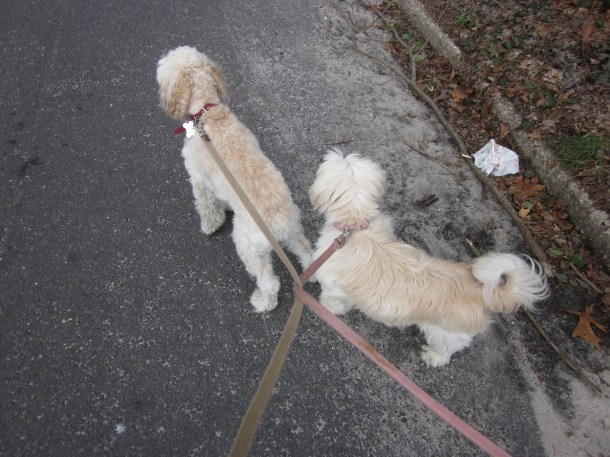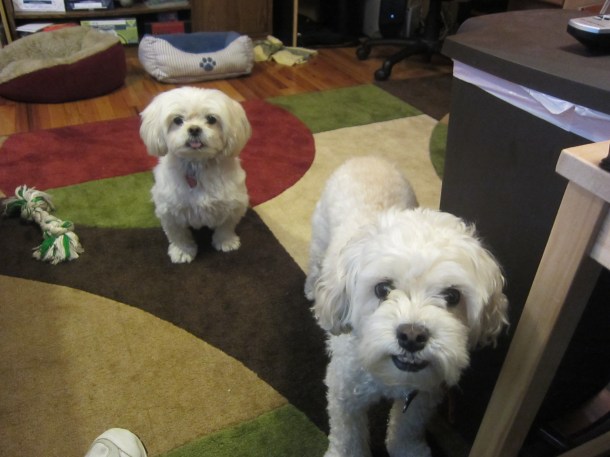
My first online, graduate, social work class went very well, except for one thing, the final exam. The materials for the course were set up by committee, pretty much, with one teacher organizing the course in the first place, then different teachers “facilitating” each class, and a team coming up with the review materials and the final exam, making changes each semester.
This, already, was a recipe for disaster, and when I read the conflicting review materials and practice exams I said so to my teacher. I said that, one, the review made no sense and made it unclear what in particular the exam would focus on; two, the course overall did not seem to lend itself to a final exam like this, because the readings were so various and really, a written assignment would make more sense, a test of comprehension rather than of memory; and three, the online testing set up, with a strange proctor watching us through the web cam, was just freaky.
My teacher tried to reassure me that everything would be fine, but he also asked me to let him know my thoughts once I’d finished the exam.
I tried to use the review materials to organize my study notes for the test, but they just didn’t make sense. Either the categories were too broad, or the advice conflicted from one page to the next. In the end, I did what I always do and overstudied. I re-read my notes from all of the lectures and readings, and re-read the readings themselves, and condensed my notes, then re-read my condensed notes, and re-read my original notes and re-condensed them another few times, until I’d stuffed information into every corner of my brain.
Cricket had been doing her best to interrupt studying all week, but she is, surprisingly, much less dogged than I am when it comes to studying. She only understands studying smells, and my notebooks just don’t smell that interesting to her. I was worried about how the dogs would deal with the proctor talking to me through the computer screen, so just before the test, I took them for a walk and then gave them each a chewy, and they were fine.

“Play with me!”

“Walkies!!!!”

“Are you done yet?”
I considered bringing Butterfly with me to the computer for the exam, but I was afraid that the proctor would accuse her of helping me cheat on the test. I might have stuffed notes into her ears, or tattooed answers under her hair. (I actually heard from classmates that each time they moved their chairs, or dropped a pen on the floor, the proctor stopped the exam and scanned the whole room again before restarting).

“I’m sending you the answers with my super powers, Mommy.”
My exam time was 9:15 in the morning, with my web cam wavering on top of my computer screen, and my microphone trying to slide off the desk. It took fifteen minutes for the proctor to set me up for the exam, with various browser issues and weird noises and blank screens. The exam itself only took about ten minutes. There were a handful of short answer questions, which were easy enough to answer, and twenty to thirty multiple choice questions, which, for the most part, made no sense. There were typos (!) in the exam questions, and words were misused, and some of the questions and answers were so vague that you could have chosen any of the four answers equally.
I was spitting mad. I wrote to my teacher immediately after the exam and said as much, trying not to type out the curse words rushing through my head. He wrote back within half an hour to tell me that I had scored an 80 on the test, and that all of my mistakes had been in the multiple choice section. And because the test had to count for 40% of my grade, I would earn an A- for the class.
This is where the noise in my head got all conflicted. An A- is not a bad grade, so it seems obnoxious to complain about it. If I’d skipped some of the readings, or been lackadaisical about studying, or submitted assignments late, then I would have accepted an A- with gratitude. But I know how hard I worked. I had to sit through sessions with my therapist, for eight weeks, while she criticized me for working too hard for this class.
I wrote back to my teacher and made a very clear and detailed argument for why this test was unfair, and why specific questions should be reexamined, and he took me seriously. He said no one else had complained about the test, but that that only meant they didn’t think they had the right to complain. The teacher believed that my argument deserved attention, and he took it to the chairman of the department for review. We are now waiting for a decision.
I worry that it is selfish to fight for myself, and bother people with my own needs, but the dogs have taught me that this is what you are supposed to do. Cricket worked on me for years, but it took watching Butterfly – the sweet, gentle, accommodating one – fighting for her needs, to wake me up.

“You’ve gotta fight for your right to chewies…I mean justice.”
There is no guarantee that my argument will prevail or that my grade will be changed. In fact, more likely than not, I will be ignored, and that feeling has been difficult to sit with, like bees buzzing under my skin. I wish it didn’t bother me so much. I wish my blood didn’t boil and my thoughts run rampant. But the girls have done their best to remind me that life goes on. Walks must be taken, poop scooped, treats given. There must be scratchies, and cuddles, and adventures, and all of that matters more than this one small unfairness.

“Hi Mommy!”
But still. Grrr!

“Grr.”












